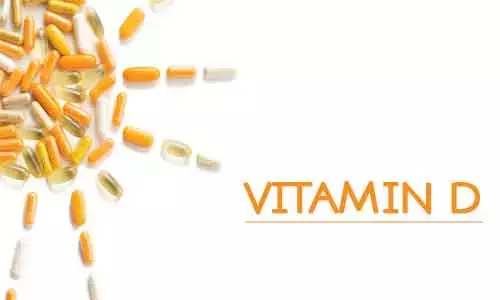- Home
- Medical news & Guidelines
- Anesthesiology
- Cardiology and CTVS
- Critical Care
- Dentistry
- Dermatology
- Diabetes and Endocrinology
- ENT
- Gastroenterology
- Medicine
- Nephrology
- Neurology
- Obstretics-Gynaecology
- Oncology
- Ophthalmology
- Orthopaedics
- Pediatrics-Neonatology
- Psychiatry
- Pulmonology
- Radiology
- Surgery
- Urology
- Laboratory Medicine
- Diet
- Nursing
- Paramedical
- Physiotherapy
- Health news
- Fact Check
- Bone Health Fact Check
- Brain Health Fact Check
- Cancer Related Fact Check
- Child Care Fact Check
- Dental and oral health fact check
- Diabetes and metabolic health fact check
- Diet and Nutrition Fact Check
- Eye and ENT Care Fact Check
- Fitness fact check
- Gut health fact check
- Heart health fact check
- Kidney health fact check
- Medical education fact check
- Men's health fact check
- Respiratory fact check
- Skin and hair care fact check
- Vaccine and Immunization fact check
- Women's health fact check
- AYUSH
- State News
- Andaman and Nicobar Islands
- Andhra Pradesh
- Arunachal Pradesh
- Assam
- Bihar
- Chandigarh
- Chattisgarh
- Dadra and Nagar Haveli
- Daman and Diu
- Delhi
- Goa
- Gujarat
- Haryana
- Himachal Pradesh
- Jammu & Kashmir
- Jharkhand
- Karnataka
- Kerala
- Ladakh
- Lakshadweep
- Madhya Pradesh
- Maharashtra
- Manipur
- Meghalaya
- Mizoram
- Nagaland
- Odisha
- Puducherry
- Punjab
- Rajasthan
- Sikkim
- Tamil Nadu
- Telangana
- Tripura
- Uttar Pradesh
- Uttrakhand
- West Bengal
- Medical Education
- Industry
Vitamin D supplementation may help reduce high BP in elderly: Study

Observational studies report higher blood pressure (BP) among individuals with lower Vitamin D concentration in blood. Whether dosage of vitamin D supplementation has a differential effect on BP control remains unclear.
Researchers have found in a new study that daily supplementation of 2000 IU and 800 IU vitamin D reduced mean systolic blood pressure.The study has been published in the The American Journal of Clinical Nutrition.
Vitamin D obtained from sun exposure, foods, and supplements is biologically inert and must undergo two hydroxylations in the body for activation. In foods and dietary supplements, vitamin D has two main forms, D2 (ergocalciferol) and D3 (cholecalciferol), that differ chemically only in their side-chain structures. Both forms are well absorbed in the small intestine.
The study aimed to determine if daily vitamin D supplementation with 2000 IU is more effective than 800 IU for BP control among older adults, reported Lauren A Abderhalden from the Department of Geriatrics and Aging Research, University Hospital Zurich and University of Zurich, Zurich, Switzerland.
The randomized, double-blind, ancillary trial of the Zurich Multiple Endpoint Vitamin D Trial in Knee Osteoarthritis enrolled adults aged ≥60 years that underwent elective surgery due to severe knee osteoarthritis. Participants were randomly assigned to receive high dose (2000 IU) or standard dose (800 IU) daily vitamin D3 for 24 months. The outcomes included daytime and 24-h mean systolic BP. BP variability and serum 25-hydroxyvitamin D concentration were examined in a post hoc and observational analysis
The following findings were noted-
- The difference in daytime mean systolic BP reduction between the 2000 IU and 800 IU groups was not statistically significant.
- Systolic BP variability was significantly reduced with 2000 IU compared to 800 IU vitamin D3.
- Independent of group allocation, maximal reductions in mean BP were observed at 28.7ng/mL of achieved serum 25-hydroxyvitamin D concentrations.
Based on the following observations, the authors concluded that "While daily 2000 IU and 800 IU vitamin D reduced mean systolic BP over 2 years to a small and similar extent, 2000 IU reduced mean systolic BP variability significantly more compared with 800 IU. However, without a placebo control group we cannot ascertain whether vitamin D supplementation effectively reduces BP."
Dr. Nandita Mohan is a practicing pediatric dentist with more than 5 years of clinical work experience. Along with this, she is equally interested in keeping herself up to date about the latest developments in the field of medicine and dentistry which is the driving force for her to be in association with Medical Dialogues. She also has her name attached with many publications; both national and international. She has pursued her BDS from Rajiv Gandhi University of Health Sciences, Bangalore and later went to enter her dream specialty (MDS) in the Department of Pedodontics and Preventive Dentistry from Pt. B.D. Sharma University of Health Sciences. Through all the years of experience, her core interest in learning something new has never stopped. She can be contacted at editorial@medicaldialogues.in. Contact no. 011-43720751
Dr Kamal Kant Kohli-MBBS, DTCD- a chest specialist with more than 30 years of practice and a flair for writing clinical articles, Dr Kamal Kant Kohli joined Medical Dialogues as a Chief Editor of Medical News. Besides writing articles, as an editor, he proofreads and verifies all the medical content published on Medical Dialogues including those coming from journals, studies,medical conferences,guidelines etc. Email: drkohli@medicaldialogues.in. Contact no. 011-43720751


